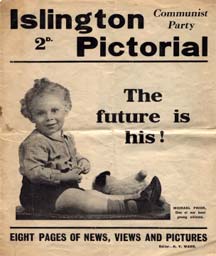|
The various pieces collected below are some accounts of both my life and times. The former needs little explanation; I was born in 1942 and, now sixty and some years later, I am setting down those parts of my life that I want to share with others. These include some obviously relevant things as the Campaign for Nuclear Disarmament (CND) and the British Communist Party. But interspersed with this I have put other things; an account of the Gallipoli battle in 1915, a biographical piece on Colonel Thomas Rainsborough, as well as various and miscellaneous exercises in political and economic analysis. The reason for including these, if reason is needed, is that they all concern my times, that is the political and cultural trajectory of Britain through which I have lived. Introduction: Memoirs such as this require an explanation as to why they are written in the way they are. This is an attempt to do this. The Land of Lost Content: This essay is a revised combination of two previous ones. It concerns a journey made around some northern towns as well as thoughts about the idea of the 'North' in England. It is very much the product of a southerner moving to the strange land known as The North. What Comes Next? This essay, written during the Covid epidemic, looks at the condition of Britain in the period leading up to the epidemic and what problems need to be addressed when we emerge from it.
Thomas Rainsborough: Thomas Rainsborough was a colonel in the Parliamentary army in the British Civil War. He was the most senior officer supporting the Levellers and was their spokesman at the Putney Debates. Murdered in 1648, he is one of the great 'what if's' of British history. What if he had lived and challenged Cromwell for leadership of the Parliamentary army? Why he is my hero and why my son carries his name is partly explained in this piece.
Advanced Capitalism and Backward Socialism: The decade 1970-80 covers a time of political upheaval in which I was deeply involved as an active member of the British Communist Party albeit one with markedly deviant views. It was also a decade when my work split sharply from my personal an political life. The following pieces include a political overview of the time, a reproduction of a pamphlet which I wrote at the height of political debate in the decade and a description of the my work which took me far away from Britain and gave me a very different perspective of the world. This pamphlet, Advanced Capitalism and Backward Socialism, was published in 1974 when British capitalism appeared to be teetering on the brink of collapse. Co-authored with Bill Warren, it provided a perspective on socialist policy which was bitterly attacked by many on the left but was also welcomed by others. Just how influential it was at the time is hard to say. Some have seen in it the roots of New Labour and this may be true. But it may also have outlined the basis for a another route for the left which, if taken, could have prevented its catastrophic failure after 1979. The Years of Lead: The decade of the 1970s is confusing and tends to be elided between the happy hippies of the 1960s and the sober realities of the Thatcherite 1980s. In fact, the confusions of the decade mask a real set of political and social debates and struggles which are still relevant today. This piece, taken from a larger project to write a history of the ideas of the time which is still in progress, provides an overview of the period. Searching for the Left: This is an essay about both the history of the British left and the choices it must face up to if it is again to become a force in British politics. Out of the Ghetto, published in 1979. This was an analysis with David Purdy of the dilemmas facing the left in Britain and possible ways out. Feelbad Britain: written with three collaborators, this was an attempt to understand the condition of the country as summarised in the title Beyond Feelbad Britain: an extension of the previous essay to take into account the financial crisis of 2008 The Pursuit of Happiness: analysis of the usefulness of the concept of national 'happiness' as discussed by several authors. Workers' Control: an essay on the idea of workers' control which was a centrepiece of left policy in the 1970s and 80s Hegemony and all that stuff: In 2017, I wrote a couple of essays for a South African magazine The Thinker concerning hegemony and the current crisis in Europe. This is an amalgamation of these with some minor changes. Stones and water: A small addition to video art; my celebration of my adopted country. Grandparents: This is a short piece on my grandparents based on such factual information as I have and a few scattered memories. |



